Last month’s blog began this series on multigenerational family wineries along the Wine Road. We’ve had great feedback from so many folks who’ve enjoyed learning about the rich histories of these family owned and operated businesses. Time now to explore five more multigenerational family wineries and their stories.
An Iconic Wine Family
If you’ve ever attended an event at A. Rafanelli Winery, you’ve experienced their legendary hospitality. What you might not know is the family has been growing grapes and making wine in Sonoma County since 1911, and their first and current winemakers were women. Prior to and all through the prohibition years, Letizia Rafanelli and her husband Alberto sold grapes and made wine. Although we consider wine one of life’s necessities, during prohibition making and selling wine was considered bootlegging. Now that’s an interesting twist to any family’s history.
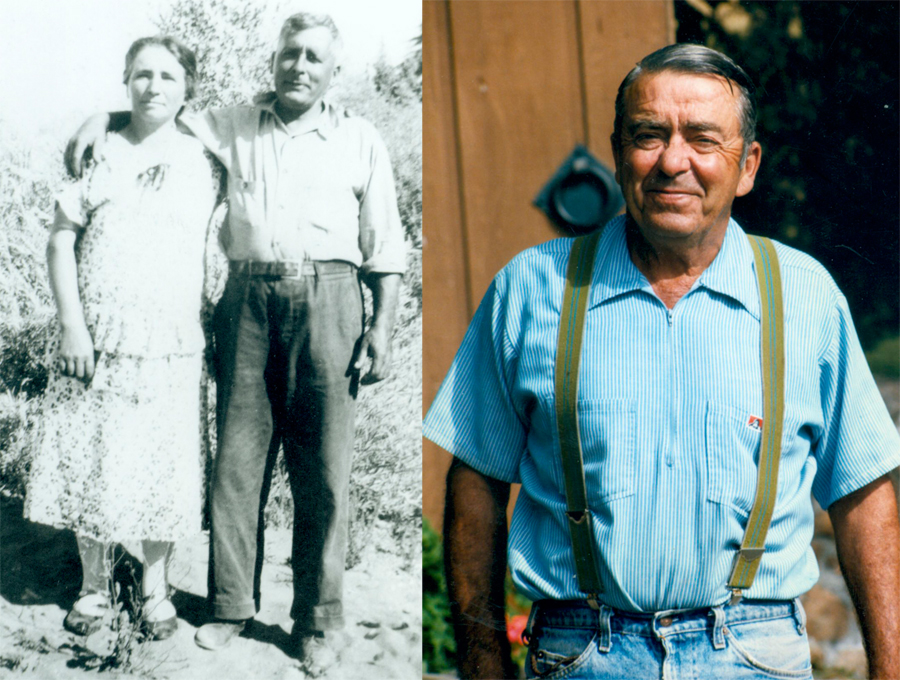
After prohibition ended in 1933, the Rafanellis bonded their barn and sold field blend white and red wine by the gallon or by the barrel. Letizia and Alberto’s son, Americo, who joined the family business, realized the potential for grape growing in Dry Creek Valley, and in 1955 purchased the current winery location. Initially, Zinfandel and the other grapes Americo planted were sold to other wineries, or used for the family’s home winemaking. It wasn’t until 1974 that the first bottle of A. Rafanelli Zinfandel was bottled and available for sale. By then Americo’s son Dave had just graduated with an enology degree from UC Davis and returned home to work in the family business.
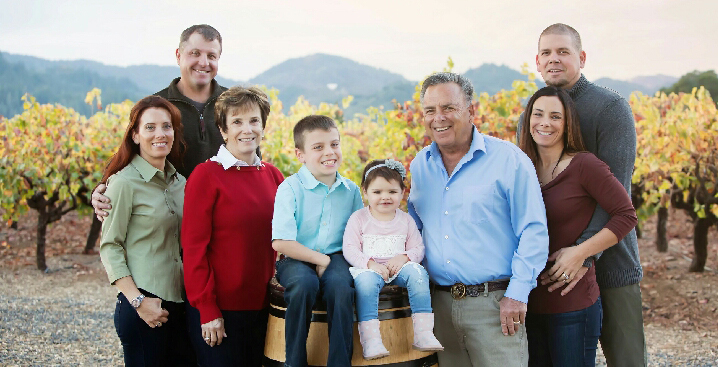
Shelly Rafanelli Fehlman, Craig Fehlman, Patty Rafanelli, Caden Fehlman, Jordan Dubois, Dave Rafanelli, Stacy Rafanelli Dubois, Steve Dubois
Dave and wife Patty grew the business, producing vintage after vintage of critically acclaimed wines. After finishing her degree in Agricultural Business from Cal Poly San Luis Obispo in 1996, Shelly (Dave and Patty’s oldest daughter) joined the winery, learning winemaking from her father, along with taking enology classes at UC Davis. In 2000, fourth-generation Shelly became the head winemaker. Shelly’s husband, Craig Fehlman, manages the vineyards, and her sister Stacy handles the daily operations of the winery. And the legacy continues.
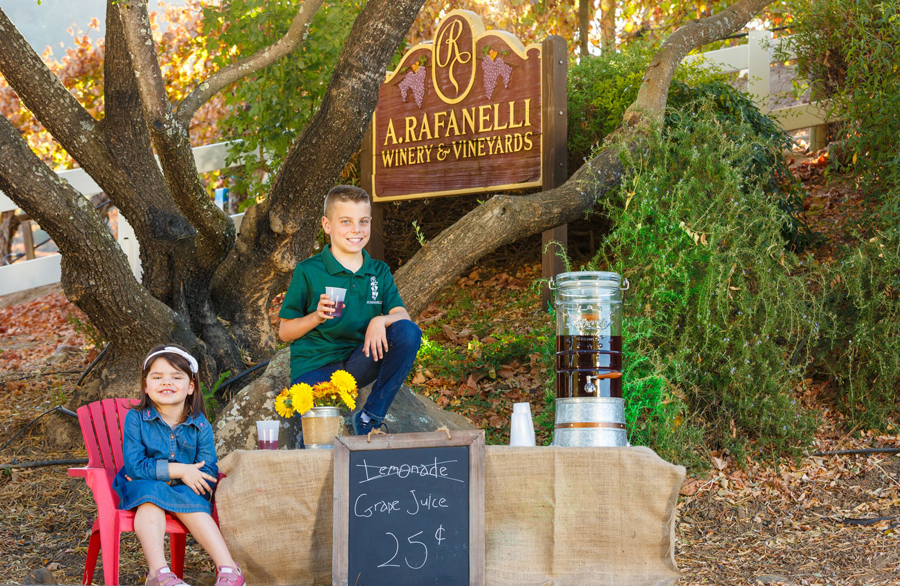
Jordan (5) and Caden (11)
Valuing the Land
In the 1960s Charles “Chuck” Kreck started buying land in Dry Creek Valley. Like Americo Rafanelli, he realized it was the perfect place to plant grapes. By 1967, he’d purchased a second parcel for vineyard development. Five years later, Chuck’s son Bill and his wife Yvonne returned from college to help manage the vineyards. Bill and Yvonne thought that growing grapes would make even more sense if the family also had a winery to showcase their grape quality. Before long, they’d convinced Bill to build a winery.

In 1974, the Kreck family established Mill Creek Winery at the southern end of Dry Creek Valley. In the early 80s, they added a new tasting room—a building built to look like a turn-of-the-century wood mill. In the early years, the family employees included Bill, Yvonne, Bill’s brother Bob and his wife Elizabeth, and Chuck and his wife Vera.
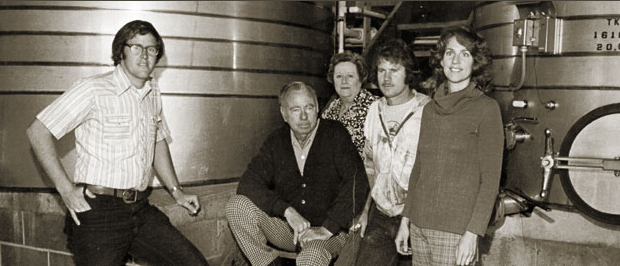
Bill, Chuck, Vera, Bob, Yvonne
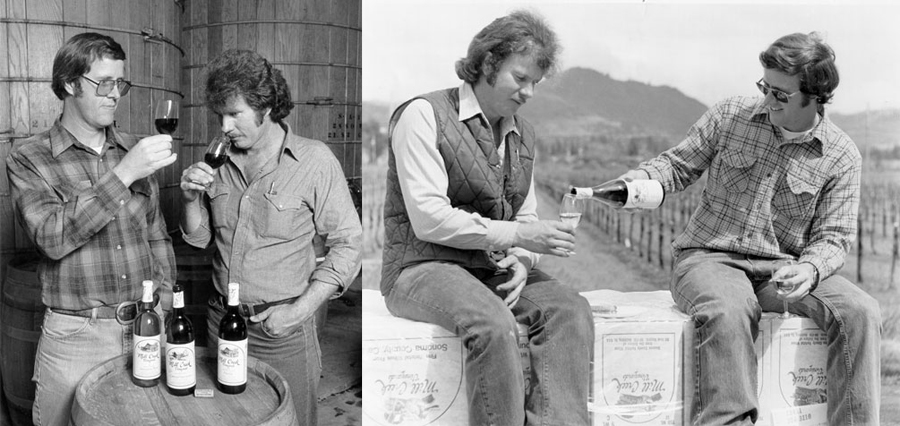
In 2000 Bill and Yvonne’s son Jeremy joined the business, working with his father and uncle in the vineyard, and with then-winemaker Hank Skewis in the cellar. In 2004 Jeremy produced his first vintage as winemaker, a role he continues to have today along with vineyard management duties.
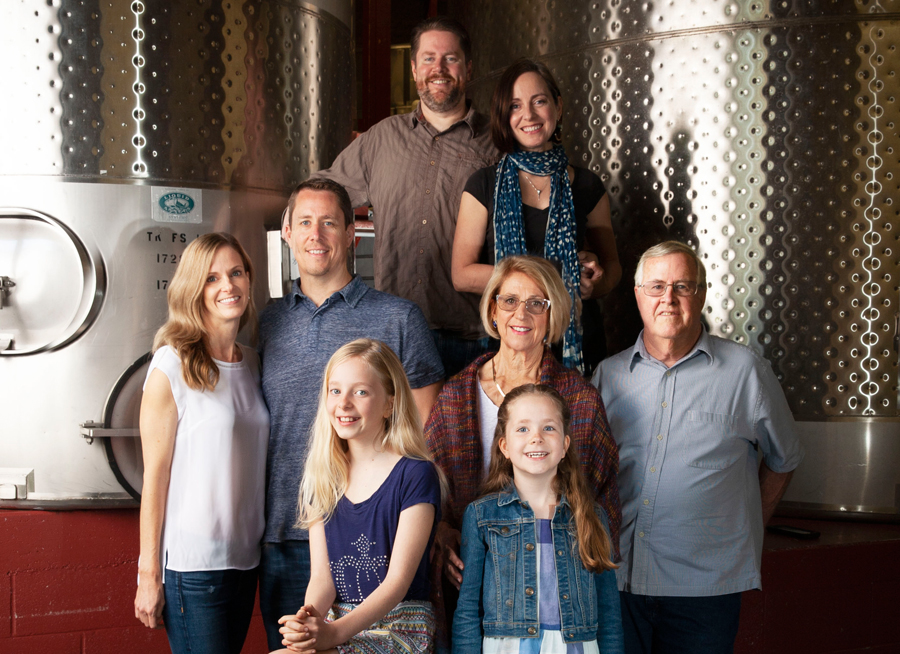
Lila, Audrey
Mindy, Jeremy, Yvonne, Bill
Brian, Sandra
Today, all the third-generation family members support the winery. Jeremy’s wife Mindy, a graphic designer, creates their labels, flyers, brochures and other printed materials. Jeremy’s brother Brian and his wife Sandra, owners of a web design business, create and maintain the winery’s website. And when you attend a winery event, you’ll find all the family members helping out and pouring their award-winning wines. The fourth generation Krecks are too young to decide their career paths just yet, so check back in about 10 years.
No Soulless Wines
A quick look at their label, their broad array of wines, and their tagline tells you Peterson Winery does things their own way. It was Fred Peterson’s passion for grapegrowing that prompted him to start a winery in 1987 off Lytton Springs Road in Dry Creek Valley. In 2006, the winery moved to Timber Crest Farms and soon after opened a tasting room.
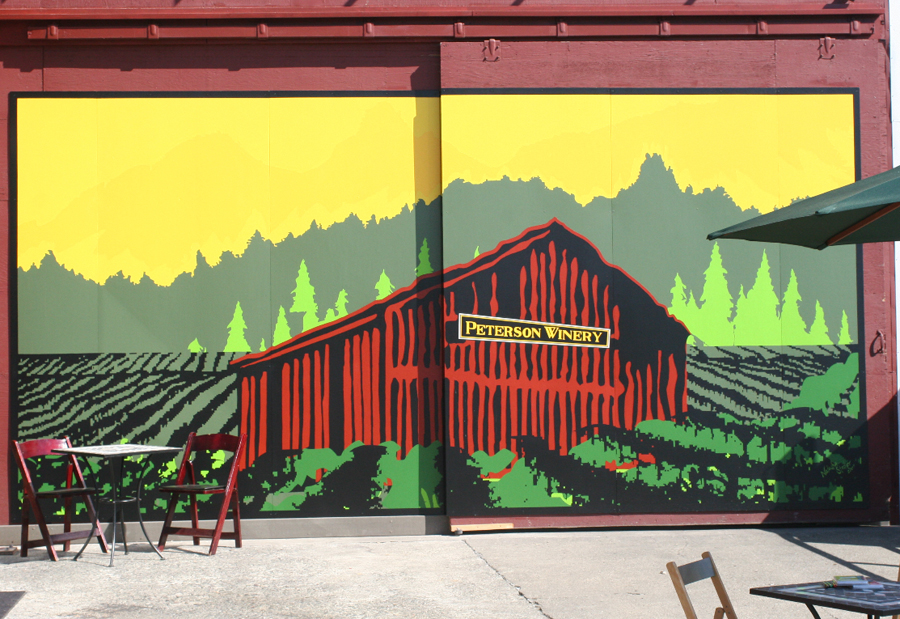
As you dive into the Peterson story and taste their wines, you understand that for Fred and his winemaker son Jamie it’s always about the grapes. This multi-generational team wants every vintage to reflect the character and quality of the grapes from that year. Early on, Fred described his limited intervention winemaking as “zero manipulation,” letting the grapes speak for themselves without changing the aromas or flavors through winemaking techniques. Today the winemaking world is abuzz with winemakers touting limited intervention, but Fred was practicing it long before it was on anyone else’s radar.
Fred’s daughter Emily handles marketing and sales for the winery, and is currently on maternity leave. Baby Oden just might be the next generation to join the family business.
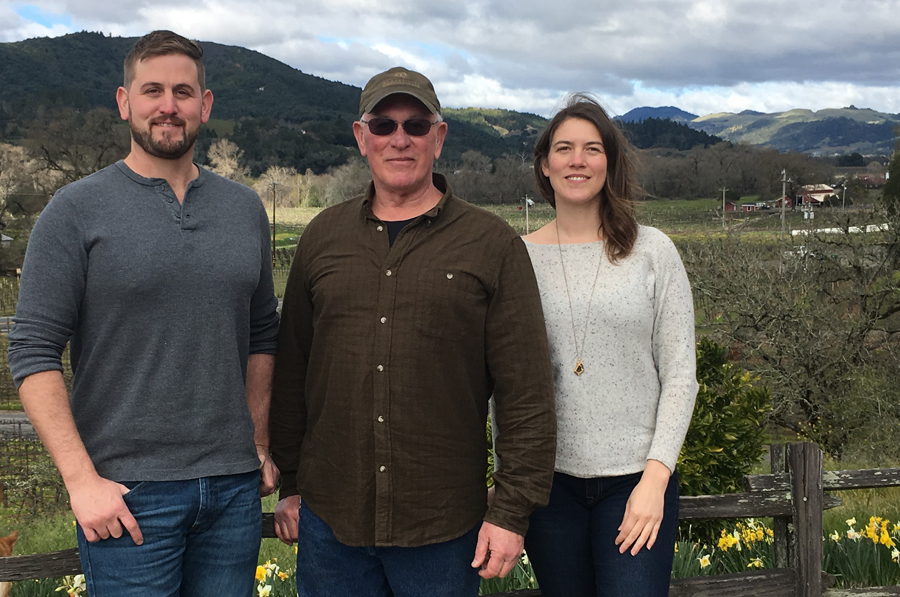
Jamie, Fred & Emily
Today, the Petersons refer to their lineup as “No Soulless Wines.” These are wines that speak of the vintage and the sense of place, reflecting the seasonal conditions where the grapes are grown. Grapes for several Peterson signature wines are grown in Bradford Mountain Estate Vineyard, Fred’s own vineyard on the northwest side of Dry Creek Valley at over 1200 feet in elevation. The Petersons also source grapes from various grower friends throughout Dry Creek and Alexander Valleys, and from Alvin Tollini’s vineyards in Mendocino County. It’s worth a trip to Peterson to try these No Soulless Wines for yourself.
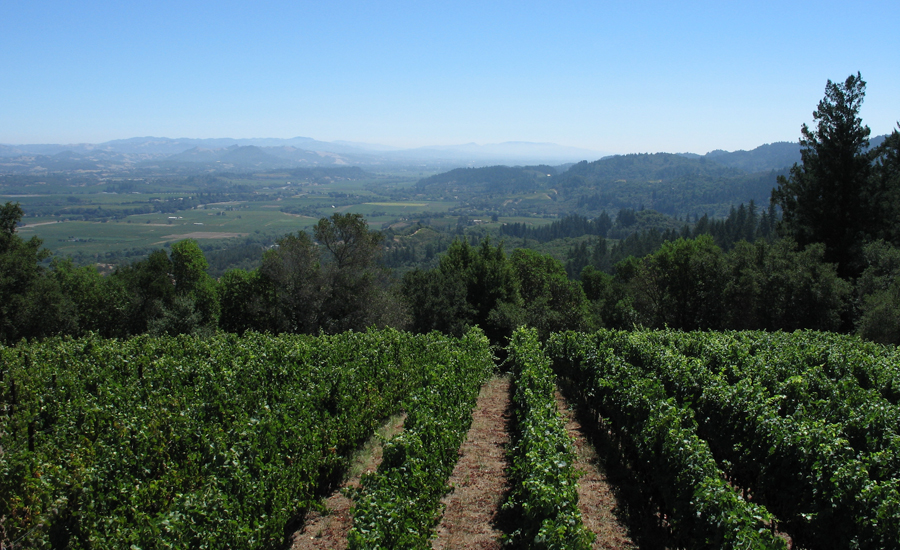
For the Love of Pinot
In 1978 when George Davis purchased land in Russian River Valley, he was eager to increase the Pinot Noir plantings on his new estate vineyard. To appease his banker and farm advisor, who saw no future for Pinot Noir in the Russian River Valley, George had to plant more Chardonnay and limit his Pinot plantings.
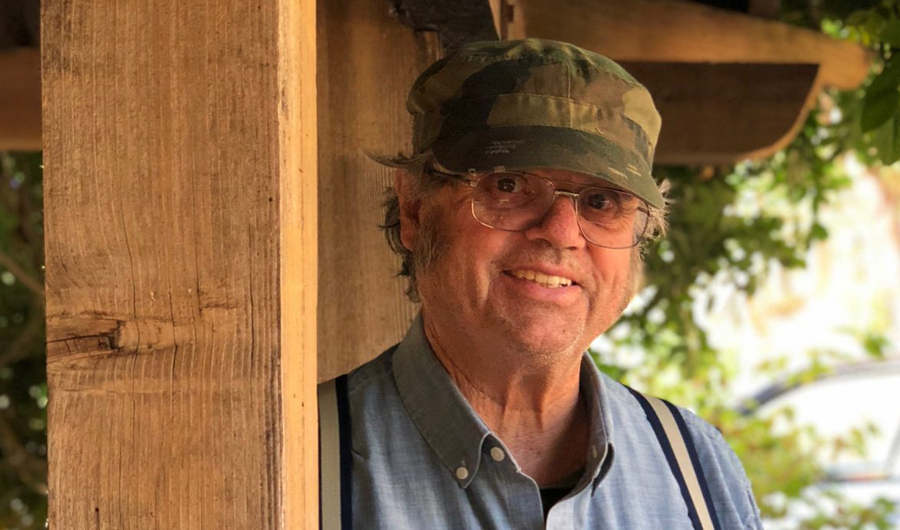
By 1982, Porter Creek Vineyards was officially a bonded winery and George, a self-taught winemaker, produced his first vintage. Over time, the banker was proven wrong and George has been able to increase his plantings of Pinot Noir.
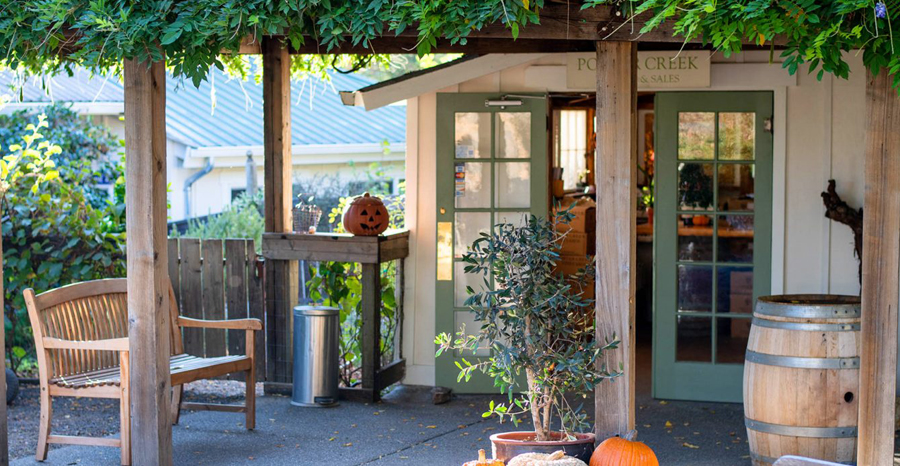
As soon as he was old enough, George’s son Alex was enlisted to help out in the vineyard and winery, doing everything from being dad’s helper and rolling wine barrels to driving tractors and tending vines. When Alex graduated from high school, George encouraged him to study winemaking at the university level. Alex’s wine education path took him on a world tour: a couple colleges in California, harvest jobs in France (three years in a row—twice in Burgundy and once in Rhône), a viticulture and enology program at Université de Bourgogne in Dijon France, and eventually a harvest in South Africa.
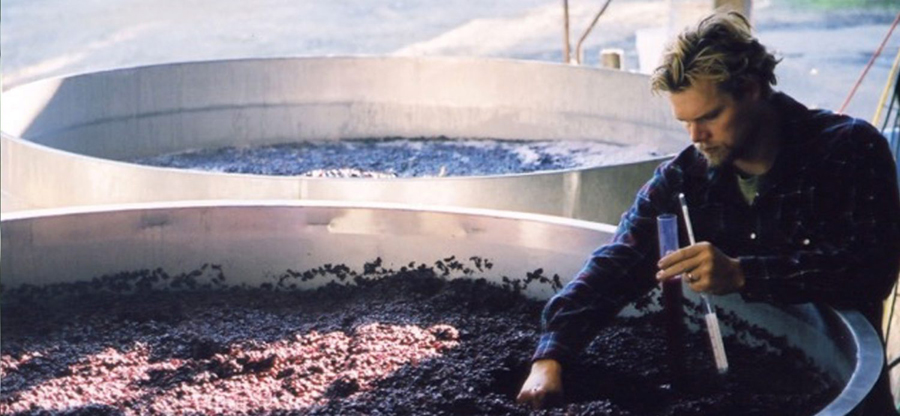
By 1997, Alex returned to Porter Creek with a well-rounded viticulture and enology education. After some negotiation, George handed over the winemaking role to Alex and focused on converting the vineyards to biodynamic farming. In 2003 the estate vineyards were Demeter Certified Biodynamic.
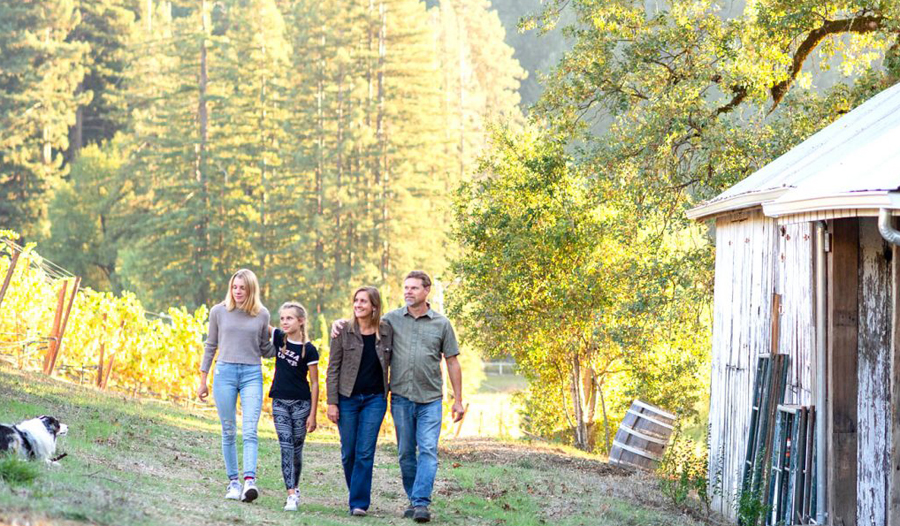
Today, Alex is both vineyard manager and winemaker, while George tends to the never-ending administrative duties at a winery. Alex’s time in Burgundy, along with his international education and love of the vineyards, is reflected in his wines.
Deep Sonoma County Farming Roots
Richard Rued’s 1957 FFA project of tending his maternal grandparents small vineyard in Dry Creek Valley turned into his lifelong career. But Richard’s local farming roots run even deeper, starting in 1876 when his paternal great grandfather Henry arrived in Napa Valley from Switzerland to work in the Beringer Brothers vineyards. By 1882 Henry had his own vineyard in Russian River Valley, and in 1905 Henry’s son purchased a ranch in Alexander Valley, which eventually Richard’s dad, Paul, farmed.
Today, Richard farms the vineyards on the family’s ancestral land in Dry Creek Valley near the winery off Dry Creek Road, and also in Alexander and Russian River Valleys. What were once apple, prune and pear orchards were long ago converted to vineyards, and now provide the estate-grown grapes for Rued Winery.
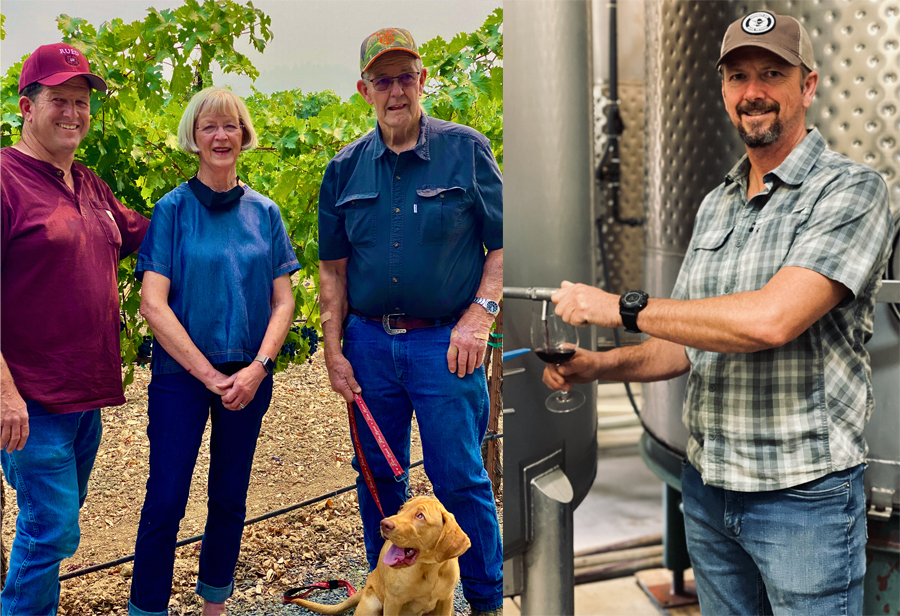
Tom, Dee, Richard, and young Libby
Winemaker Steve
When the Rued Winery building was completed in 2006, the family was all hands on deck. Richard’s wife Dee manages the tasting room and the business aspects of the winery. Son Steve is the winemaker, and Richard and Dee’s other son Tom can be found tending the vineyards with his dad. The next generation of Rueds is still determining their career paths, but you can spot them helping out at winery events.
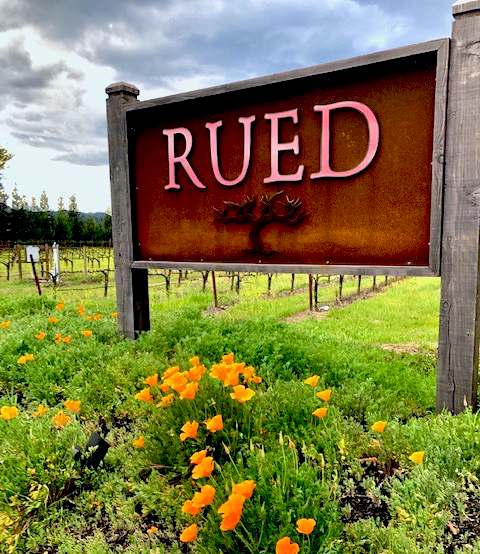
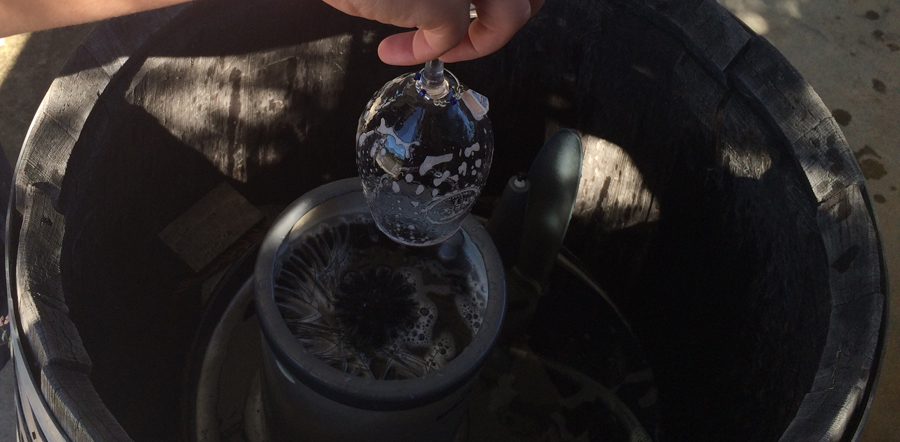
If you are fortunate enough to attend one of the Rued’s winery events in the future, not only will you love their wines, but also the foot-operated wine glass washing and rinsing station!
Why Focus on Multigenerational Family Wineries?
When researching this blog series, I realized all of these multigenerational families’ passion for wine stems from their love of the land and devotion to growing premium quality grapes. As a farmer’s market supporter and former farm girl, I love being able to connect to my food sources and support the farmers and cottage industries around me. As a parting thought, if you want to support small businesses and family farms, there are plenty of family-owned wineries and locally produced wines to seek out. I encourage to you explore the wineries covered in this series and so many, many more along the Wine Road.
Happy Sipping!
@thewineroad
#thewineroad
#alongthewineroad
#multigenerationalfamilywinery
#familyfarms
Cover photo courtesy of Porter Creek Vineyards




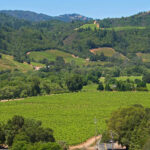
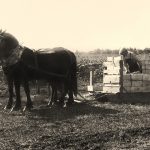
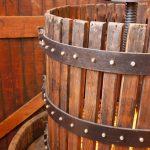
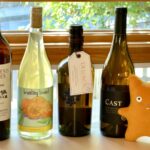
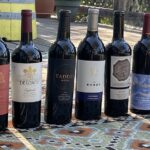
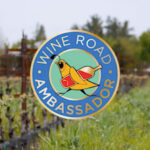
I love the article about the families and their history. It really personalizes the experience.